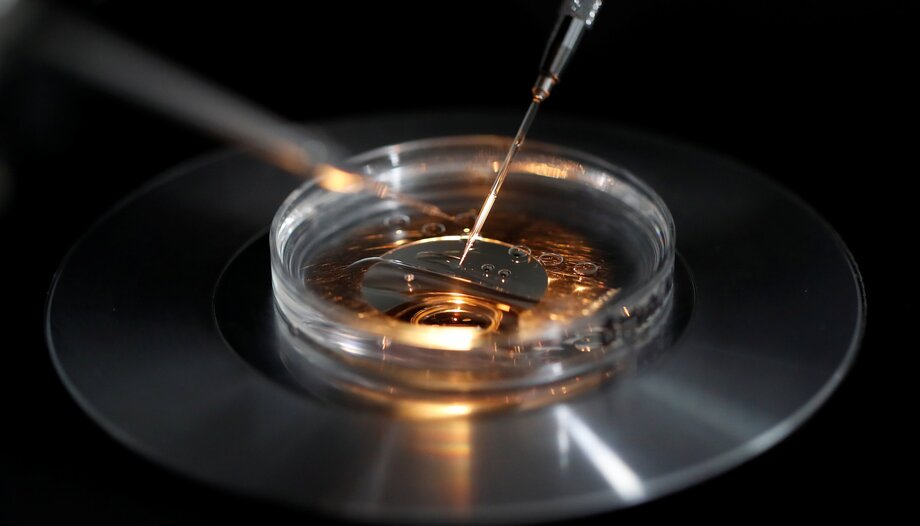2024 is a complex year in the United States. The presidential race for the White House in November has begun and this implies a debate on many issues of interest to the public. In this sense, bioethics comes to the fore with issues such as abortion or assisted reproduction.
The current President of the United States, Joe Biden, stated in one of his last speeches that he wants to secure the abortion as a constitutional right. Following the Supreme Court's overturning of Roe v. Wade, activists consistently call for the protection of abortion as a right.
What is just an idea in the United States is already a reality in France. There, abortion will be a constitutional right after the reform approved on March 4. Since then, many other politicians want to imitate the "breakthrough", encouraged also by the celebration of International Women's Day on March 8.
Assisted reproduction as a right
However, abortion is not the only bioethical issue in the debates. On January 18, a group of representatives in the U.S. Congress presented a text that has provoked considerable controversy. It is the "Access to Family Building Act", a bill aimed at "prohibiting the limitation of access to assisted reproductive technology, and all medical care surrounding such technology".
Assisted reproductive technology is defined by U.S. law as "all treatments or procedures involving the manipulation of human oocytes or embryos, including in vitro fertilization, gamete intrafallopian transfer, zygote intrafallopian transfer" and other similar technologies ("Fertility Clinic Success Rate and Certification Act of 1992").
Unlimited right
Precisely, the bill presented aims to ensure that healthcare providers provide patients with the services of these technologies, and that they "receive them without limitations or requirements that are more burdensome than the limitations or requirements imposed on medically comparable procedures; do not significantly improve the reproductive health or safety of such services; or unduly restrict access to such services."
That last and third condition is the one that has set off alarm bells. How can an "undue restriction on services" be defined? Is conscientious objection by healthcare technicians an "undue restriction"?
The bill establishes access to assisted reproductive technology as a right, "including without prohibition or unreasonable limitation or interference". Not only that, but it includes within that power to "retain all rights relating to the use or disposition of reproductive genetic materials, including gametes."
The text also provides that the State Attorney General "may bring a civil action on behalf of the United States against any State, local municipality, or any government official, individual or entity that enacts, implements or enforces a limitation or requirement that prohibits, unreasonably limits or interferes" with the right of access to these assisted reproductive technologies. Like the Attorney General, individuals and health care providers may also bring civil actions against those who limit access to these techniques.
No conscientious objection
So what happens to those health care providers who, because of bioethical concerns, do not want to perform these types of services? The bill states that the rule must be applied in all states, regardless of whether it conflicts with any other provision, including the Religious Freedom Restoration Act. This means that conscientious objection can hardly be invoked as a reason for not providing assisted reproductive services.
On the question of unconstitutionality, the text also seeks to overcome this obstacle. Thus, it states that "if any provision of this Act, or the application of such provision to any person, entity, government or circumstance is held to be unconstitutional, the remainder of this Act, or the application of such provision to all other persons, entities, governments or circumstances shall not be affected thereby."
The dangers of the new law
The U.S. Conference of Catholic Bishops has issued a press release echoing the situation. The first thing the episcopate points out is that they are aware that infertility "is a challenge faced by more and more families". They therefore encourage couples who want to have children to seek licit ways to achieve pregnancy. However, they remind that "the solution can never be a medical process that involves the creation of countless children before birth and results in most of them being frozen or discarded and destroyed".
The bishops' statement notes their strong opposition to the Access to Family Building Act. The episcopate draws attention to the fact that this new regulation "would be the first law in history to exempt itself from the long-standing Religious Freedom Restoration Act".
The USCCB warns that "faith-based nonprofit charities, schools and church organizations that serve their communities and, as a matter of principle, cannot cover 'in vitro' fertilization in their employee health plans could face impossible, potentially existential choices." Not only that, but faith-based healthcare facilities and those who work in them "could be similarly forced to facilitate procedures that violate their beliefs or leave the industry."
Bioethical implications
But the problems raised by the Bishops' Conference do not end there. The bishops also mention the bioethical issues of "human cloning, gene editing, the manufacture of human-animal chimeras, the reproduction of the children of a long deceased parent, the buying and selling of human embryos, surrogacy, etc.".
The USCCB assures that even those who do not "agree with the humanity of every conceived person" must recognize the obvious dangers of the bill. The communiqué further stresses that "a position that supports the legal consecration of 'in vitro' fertilization, however well-intentioned, is neither pro-life nor pro-child". For this reason, the U.S. episcopate encourages the search for more effective measures against infertility, such as "investment in research" or "the strengthening of support for couples who wish to adopt".
For now, the "Access to Family Building Act" is in the pipeline. It still has to cross the barriers of Congress, the Senate and the President before becoming law. But there are already fears about its ambiguity and the threat of its consequences, which many denounce as yet another step backwards in the field of bioethics.








